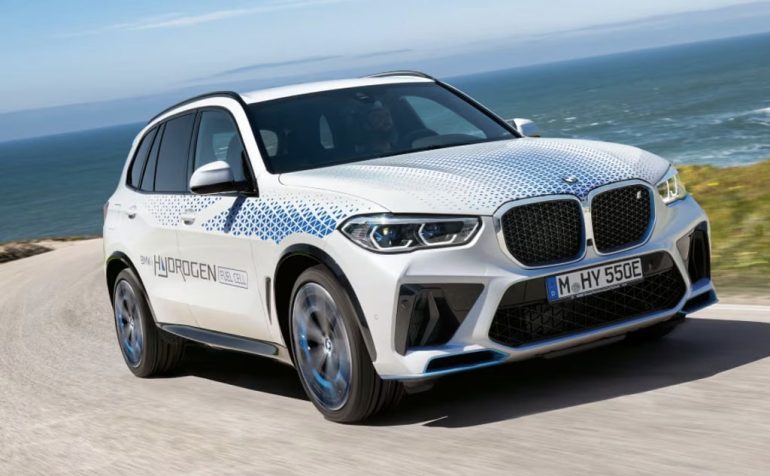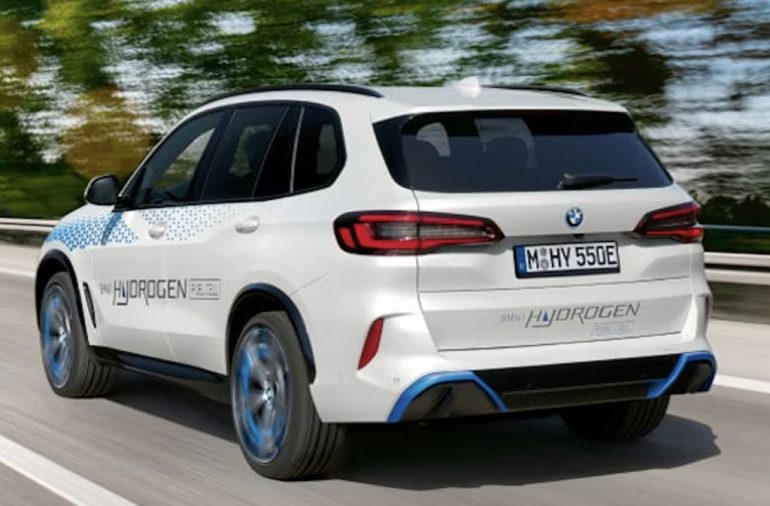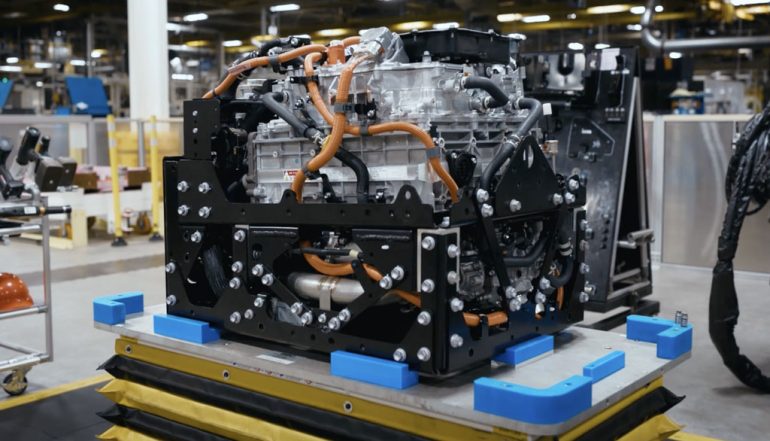
In a market that seems dominated by electric vehicles, it’s easy to forget there’s another zero-emissions technology that once had its moment in the spotlight — hydrogen fuel-cell power. As battery-electric vehicles (BEVs) grapple with infrastructure limitations, consumer skepticism, and slowing sales growth, a handful of automakers are quietly reigniting their investment in hydrogen. One of the boldest voices in that space right now is BMW.
The German automaker recently stated that “the timing is right” for hydrogen, and it’s not alone. Toyota, Hyundai, and Honda continue to pursue hydrogen-powered cars, while global investments in hydrogen infrastructure steadily ramp up. But after decades of false starts, is hydrogen really ready for a second chance in the spotlight — or is it still a science fair project masquerading as the future?
BMW’s Hydrogen Revival — A Calculated Move or a Shot in the Dark?
BMW isn’t abandoning electric vehicles — far from it. The company has an ambitious lineup of EVs, including future Neue Klasse models that promise over 600 miles of range. But BMW sees potential in diversifying its clean energy bets. In 2024, the automaker unveiled the iX5 Hydrogen prototype, powered by a Toyota-sourced fuel-cell system, and it now plans to launch a production hydrogen SUV by 2028, likely based on the next-generation X5.
Dr. Jürgen Guldner, BMW’s General Program Manager for Hydrogen Technology, told Driving Hydrogen that the brand is confident the market is warming up to the technology. “We believe the timing is right,” he said, citing improved infrastructure in Europe, Japan, and Korea, as well as the unique advantages hydrogen offers — like rapid refueling and zero tailpipe emissions.

Hydrogen vehicles offer the quiet, instant-torque experience of electric cars, but without the long recharge times that frustrate many EV owners. A full hydrogen refill can take just 3 to 5 minutes, similar to refueling a gasoline car. For BMW, it’s about delivering “the best of both worlds.”
Toyota Is Still All-In on Hydrogen — Especially in Japan
While BMW may be relatively new to hydrogen production vehicles, Toyota is already a veteran. The Japanese automaker launched the first-generation Mirai in 2014 and followed it with a second-gen model in 2020. While sales have been modest, Toyota remains bullish. The company is also investing heavily in commercial and industrial hydrogen tech, developing everything from buses to hydrogen combustion engines for motorsports.
In 2023, Toyota announced a hydrogen-powered version of the Hilux pickup, developed in collaboration with the UK government. The company also has ongoing partnerships with Chinese automakers like FAW and GAC to localize hydrogen tech for Asian markets.

Toyota’s long-term vision includes a hydrogen society where FCEVs (fuel cell electric vehicles) complement BEVs in a mixed mobility future. According to their latest sustainability report, the company expects fuel-cell systems to play a key role in sectors where battery-electric tech has limitations, especially in high-load and long-distance applications.
The EV Market Is Still Growing — But It’s Evolving
Despite media reports about EV slowdowns, the global electric vehicle market is still expanding. According to the International Energy Agency (IEA), EV sales surpassed 14 million units globally in 2023, and are on track to exceed 17 million in 2025. In the U.S., BEVs reached nearly 8% of all new car sales in 2024, a jump from just 2% in 2020.
However, growth isn’t linear — it’s regional and increasingly dependent on infrastructure and incentives. In markets like Germany and the U.S., where charging infrastructure still lags behind adoption rates, consumers are starting to push back. A McKinsey & Company study from early 2024 found that 38% of potential EV buyers in North America expressed concerns about charging convenience and range anxiety.
That’s where hydrogen quietly reenters the chat.
Global Hydrogen Investments Are Heating Up
The market for hydrogen fuel is no longer theoretical. Europe’s hydrogen sector was valued at $77.8 billion in 2024 and is expected to grow to nearly $150 billion by 2033, according to Allied Market Research. The European Union’s Hydrogen Strategy aims to build 40 gigawatts of renewable hydrogen electrolyzer capacity by 2030, with Germany, France, and Spain leading the charge.
Elsewhere, Australia launched its first public hydrogen refueling station, while Brazil announced a $30 million investment in a green hydrogen plant. In the U.S., California remains the focal point for hydrogen fuel-cell adoption, with 55 public refueling stations and counting — though expansion has been slow.
Honda, which paused its hydrogen push in North America in recent years, recently returned to the scene with a hydrogen-powered CR-V prototype. According to Honda’s Chris Martin, the goal is to help build the hydrogen economy now so it can support widespread personal vehicle use later.

So, Can Hydrogen Power Really Make a Comeback?
Hydrogen vehicles face steep challenges. The fueling infrastructure is limited, the production and transport of hydrogen remain energy-intensive, and public awareness is low. Additionally, the vehicles themselves are expensive to build, partly because of platinum-heavy fuel-cell stacks and a lack of economies of scale.
Still, hydrogen’s high energy density and quick refueling make it an appealing option for specific use cases — especially heavy-duty transport, long-distance driving, and regions where fast charging remains impractical. Automakers like BMW and Toyota aren’t betting on hydrogen to replace BEVs. Rather, they see it as a complementary solution that fills gaps battery power can’t.
In the words of BMW CEO Oliver Zipse: “One-sided regulations that limit supply lead down a dead-end street.” That philosophy underpins BMW’s strategy to keep developing gas, electric, and hydrogen powertrains simultaneously.
The Road Ahead
While it may be too early to declare a hydrogen renaissance, the momentum is real. With continued investment, growing global infrastructure, and a few high-profile automakers leading the charge, hydrogen could play a meaningful role in the clean mobility landscape — perhaps not for everyone, but certainly for more than just a few niche buyers.
Whether or not it happens in our lifetime depends on regulation, innovation, and consumer perception. But one thing is clear: hydrogen isn’t dead. It might just be waiting for its moment.
FOLLOW US TODAY:

